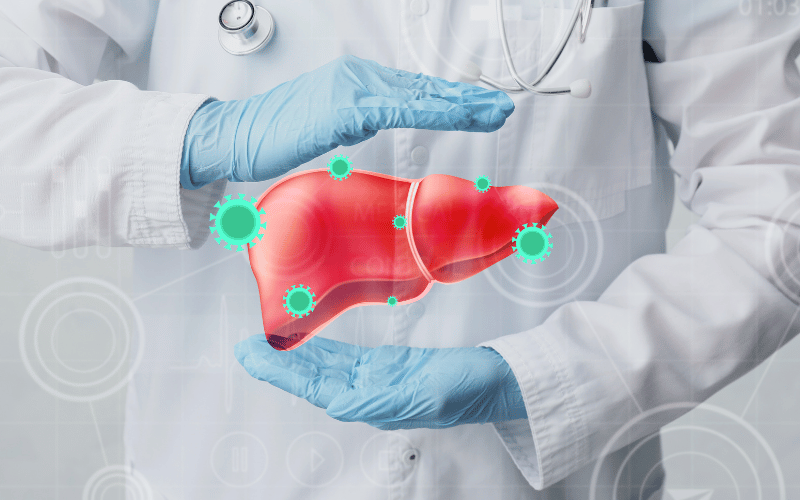Symptom 9: Enlarged Liver

Hepatomegaly, in simpler terms, refers to the enlargement of the liver. As one of the largest organs in the body, the liver plays several vital roles, from breaking down and filtering out harmful substances to producing essential proteins. An enlargement of such an integral organ signals underlying issues, often related to inflammation or damage.
In the case of Autoimmune Hepatitis, the body’s immune system, in a mistaken overdrive, attacks the liver cells. This persistent assault causes inflammation, leading the liver to swell over time. As AIH progresses, this enlargement becomes more pronounced and can be discerned during medical examinations, making it a crucial symptom to be aware of.
While the liver has an incredible ability to heal and regenerate, continuous inflammation can push it to its limits. An enlarged liver isn’t just a symptom; it’s an urgent cry for attention. It signals that the liver’s usual functioning is compromised, which can affect various bodily processes, from digestion to blood clotting.
Often, an enlarged liver is first detected during a routine check-up. It might not be palpable in the early stages, but as the condition worsens, it can lead to discomfort or pain in the upper right abdomen. Medical imaging, like ultrasounds or MRIs, can further confirm the extent of the enlargement and help doctors understand the severity of the AIH.
Recognizing hepatomegaly is pivotal in AIH management. Once identified, it can expedite diagnostic processes, enabling timely interventions. An enlarged liver provides tangible evidence of the disease’s progression, helping medical professionals adjust treatment strategies to prevent further damage and complications. (9)